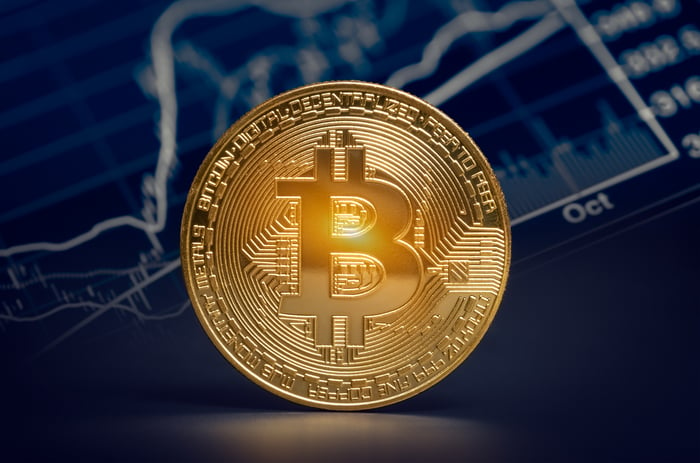10 Reasons Bitcoin Is a Terrible Investment
It’s been a challenging year for Wall Street. We’ve witnessed the quickest bear market decline of at least 30% in history, as well as the most ferocious comeback of all time, with the benchmark S&P 500 taking less than five months to reach new highs.
But one investment that hasn’t been phased by the coronavirus pandemic or heightened volatility is the cryptocurrency bitcoin. On a year-to-date basis, through Wednesday evening, Oct. 14, bitcoin was up just shy of 60%.

Image source: Getty Images.
Why is bitcoin outperforming in 2020?
Why does bitcoin continue to outperform equities? For one, there’s the idea of scarcity. Only 21 million bitcoin tokens can be mined, which creates a level of scarcity that pushes up the value of these digital tokens.
Another reason bitcoin has done so well is the expectation of a digital revolution. This is to say that bitcoin buyers believe the utility of paper money has come and gone. This could prove somewhat accurate with the pandemic highlighting the potential for physical cash to be a carrier of harmful germs. With the rise of peer-to-peer payment platforms, bitcoin looks to become the superior digital currency.
Bitcoin also benefits from its first-mover advantage in the cryptocurrency space. It was the first digital token to catch on with investors, and happens to be the largest on a market-cap basis by a significant amount (it’s five times the size of Ethereum, the second-largest cryptocurrency by market cap). Today, bitcoin serves as the intermediary asset on a number of crypto investment platforms if you want to purchase a less-common token (i.e., anything not named Ethereum or Ripple).

Image source: Getty Images.
Buying bitcoin could be a big mistake
But as good as bitcoin has been for investors in 2020, my blunt opinion is that it’s a terrible investment. Here are 10 reasons you should avoid bitcoin like the plague.
1. Bitcoin isn’t really scarce
First of all, bitcoin is only as scarce as its programming dictates. Whereas physical metals, such as gold, are limited to what can be mined from the earth, bitcoin’s token count is limited by computer programming. It’s not out of the question that programmers, with overwhelming community support, could choose to increase bitcoin’s token limit at some point in the future. Thus, bitcoin offers the perception of scarcity without actually being scarce.
2. It has a utility problem
The king of cryptocurrencies also has a utility problem. To date, only 18.51 million bitcoin tokens are in circulation, with an estimated 40% of these held by small group of investors. Even considering the fact that fractional token ownership exists, roughly 10 million to 11 million tokens in circulation aren’t going to go very far. For context, global gross domestic product was $81 trillion in 2017. Meanwhile, bitcoin has approximately $114 billion to $125 billion in tokens freely circulating and not held tight by investors. There’s minimal utility here.
3. There’s a low barrier to entry
Bitcoin may enjoy first-mover advantage at the moment, but the barrier to entry in the cryptocurrency space is especially low. All it takes is time and coding knowledge for blockchain — the digital and decentralized ledger that records transactions — to be developed and a digital token to be tethered to the network. There’s nothing unique about bitcoin’s underlying blockchain that other businesses couldn’t one-up.

Image source: Getty Images.
4. Few (if any) tangible means to value bitcoin
Another beef with bitcoin is that there’s no tangible way to value it as an asset. For instance, if you want to buy shares of a publicly traded company, you can scour income statements, its balance sheet, read about industrywide catalysts, and listen to management commentary from recent conference calls and presentations. In other words, you can make an informed decision.
With bitcoin, there is no tangible data for investors to wrap their hands around. There’s transaction settlement times and total circulating token supply, but neither of these figures tells us anything about the value or utility of bitcoin.
5. Fiat currencies may work on blockchain
I believe investors are also placing their faith in the wrong asset. Over the long term, blockchain technology is where the real value lies. Blockchain can be used to reinvent supply-chain management and expedite overseas payments. But when folks are buying into bitcoin, they’re gaining ownership in digital tokens with zero ownership of the underlying blockchain.
To build on this point, companies are also testing blockchain that’s tethered to fiat…
Read More: 10 Reasons Bitcoin Is a Terrible Investment

